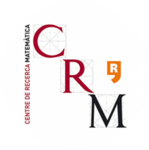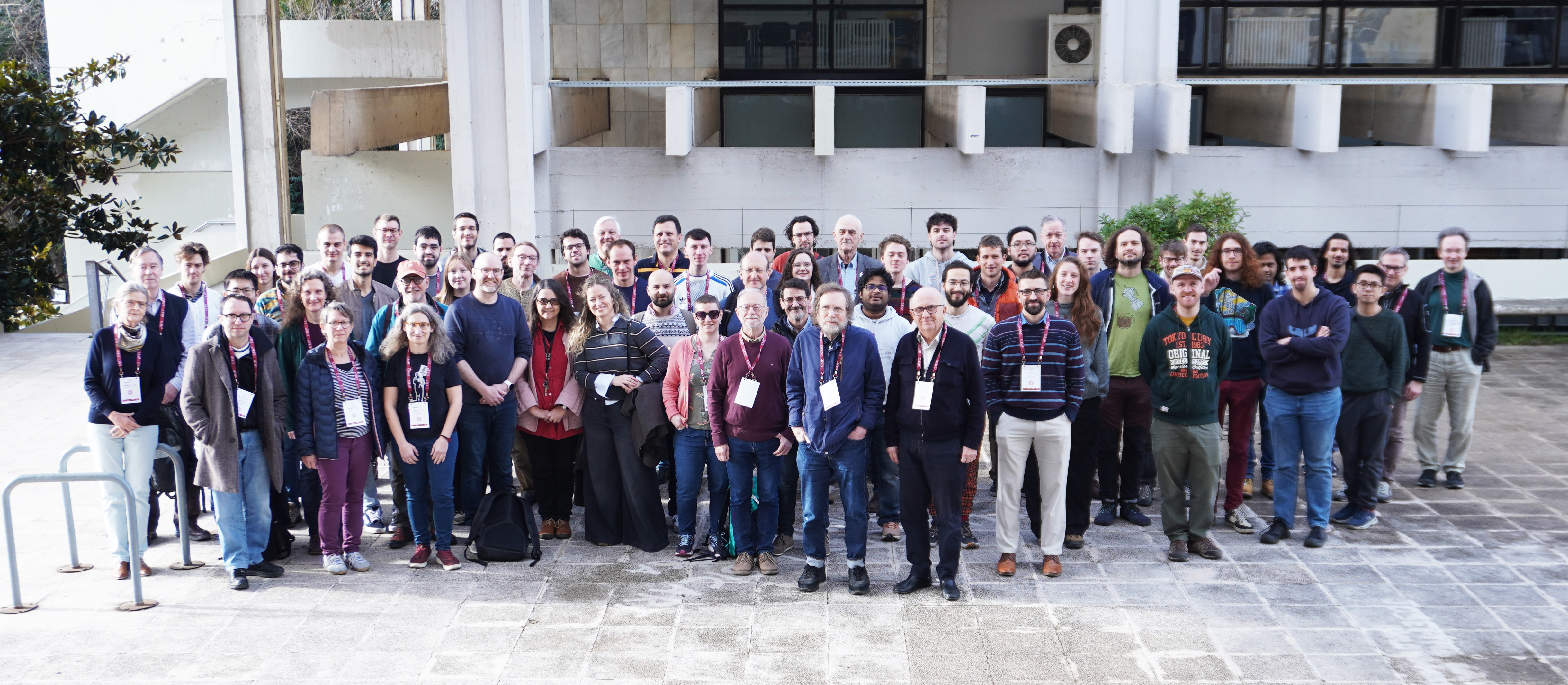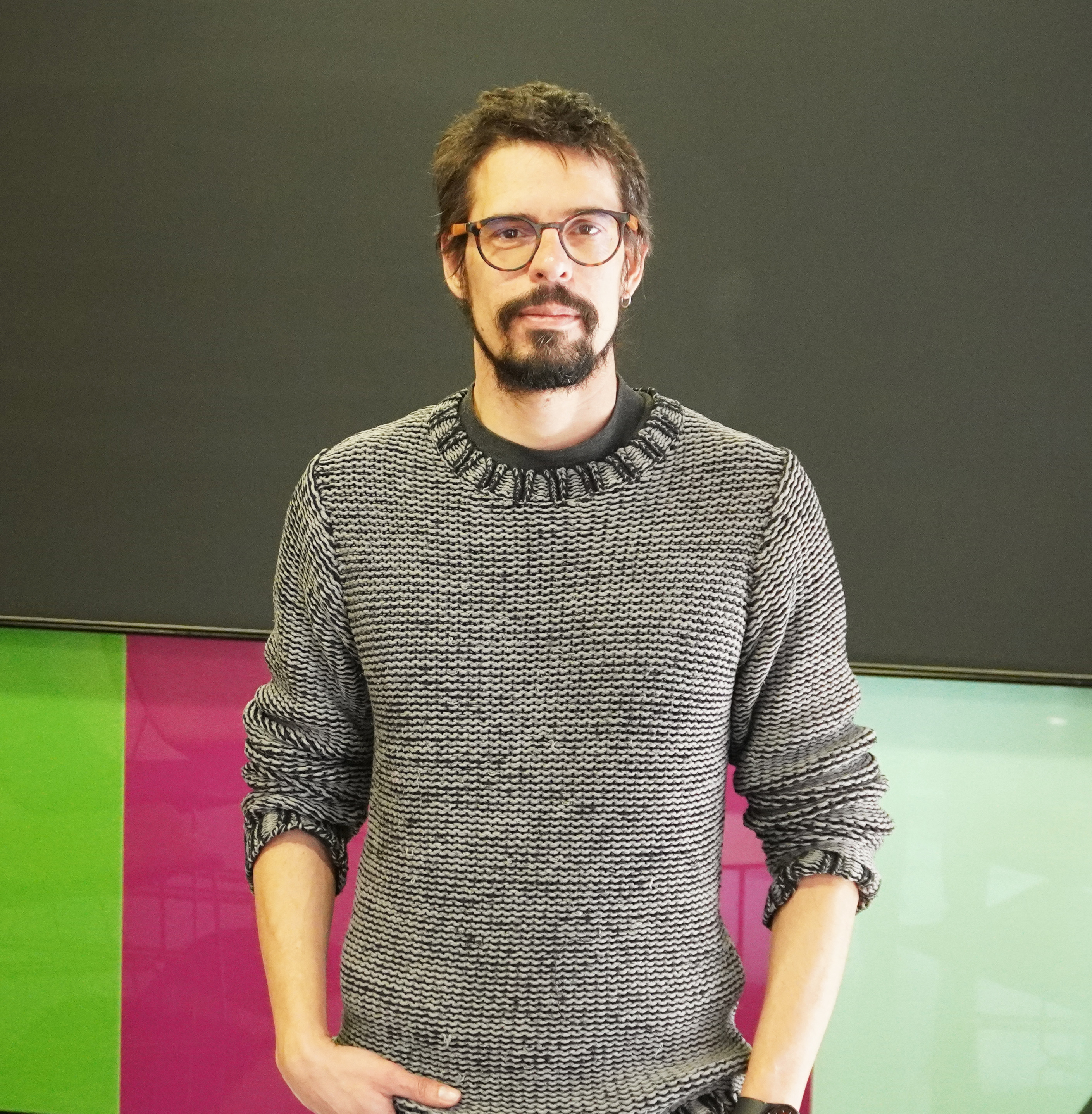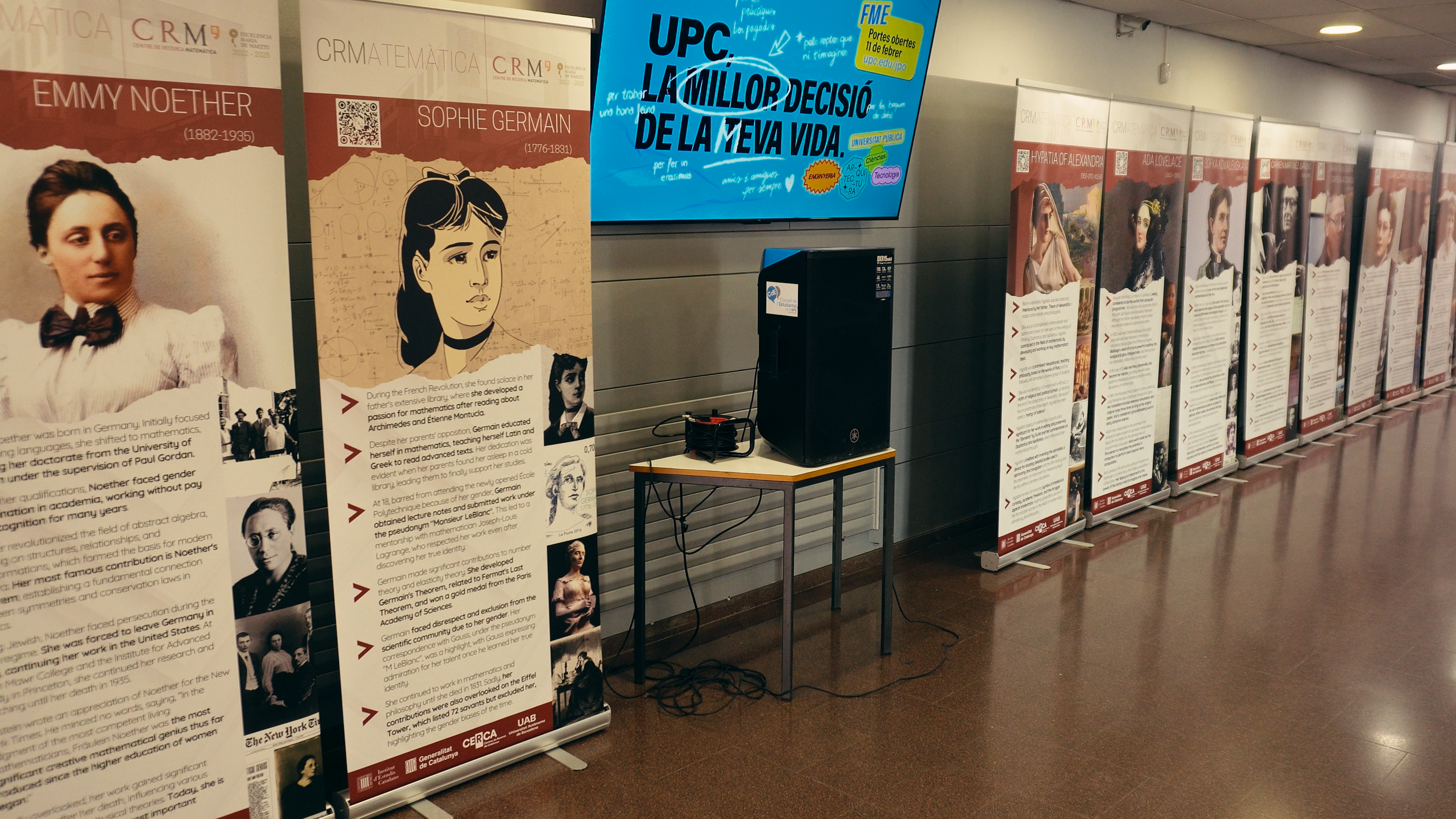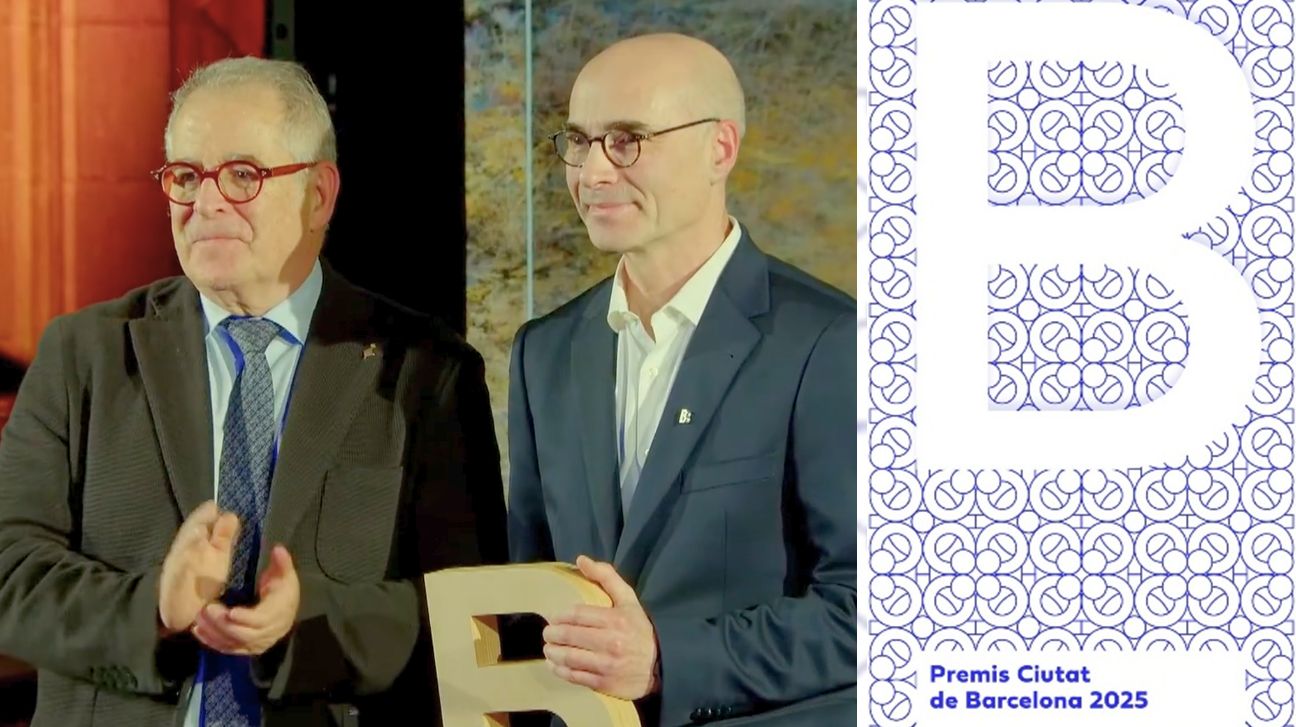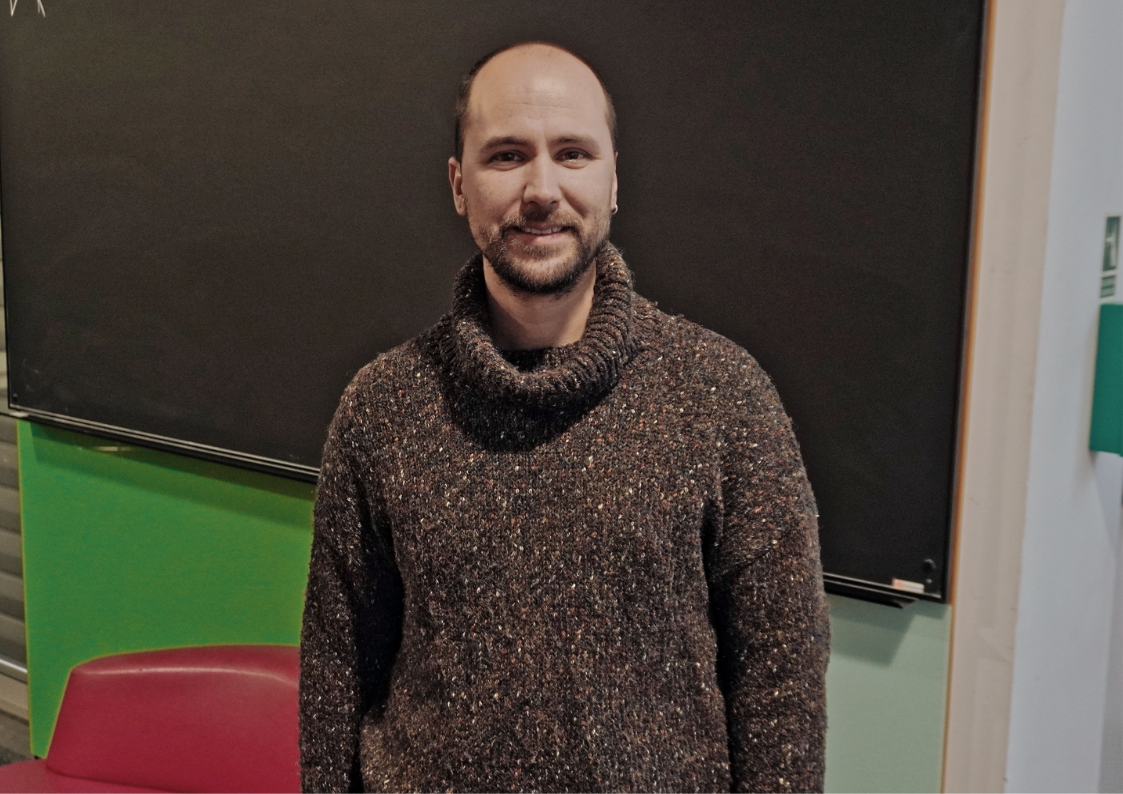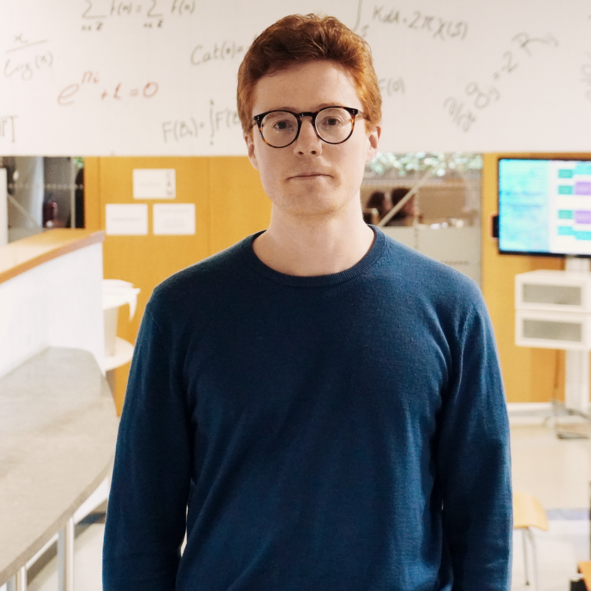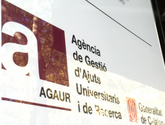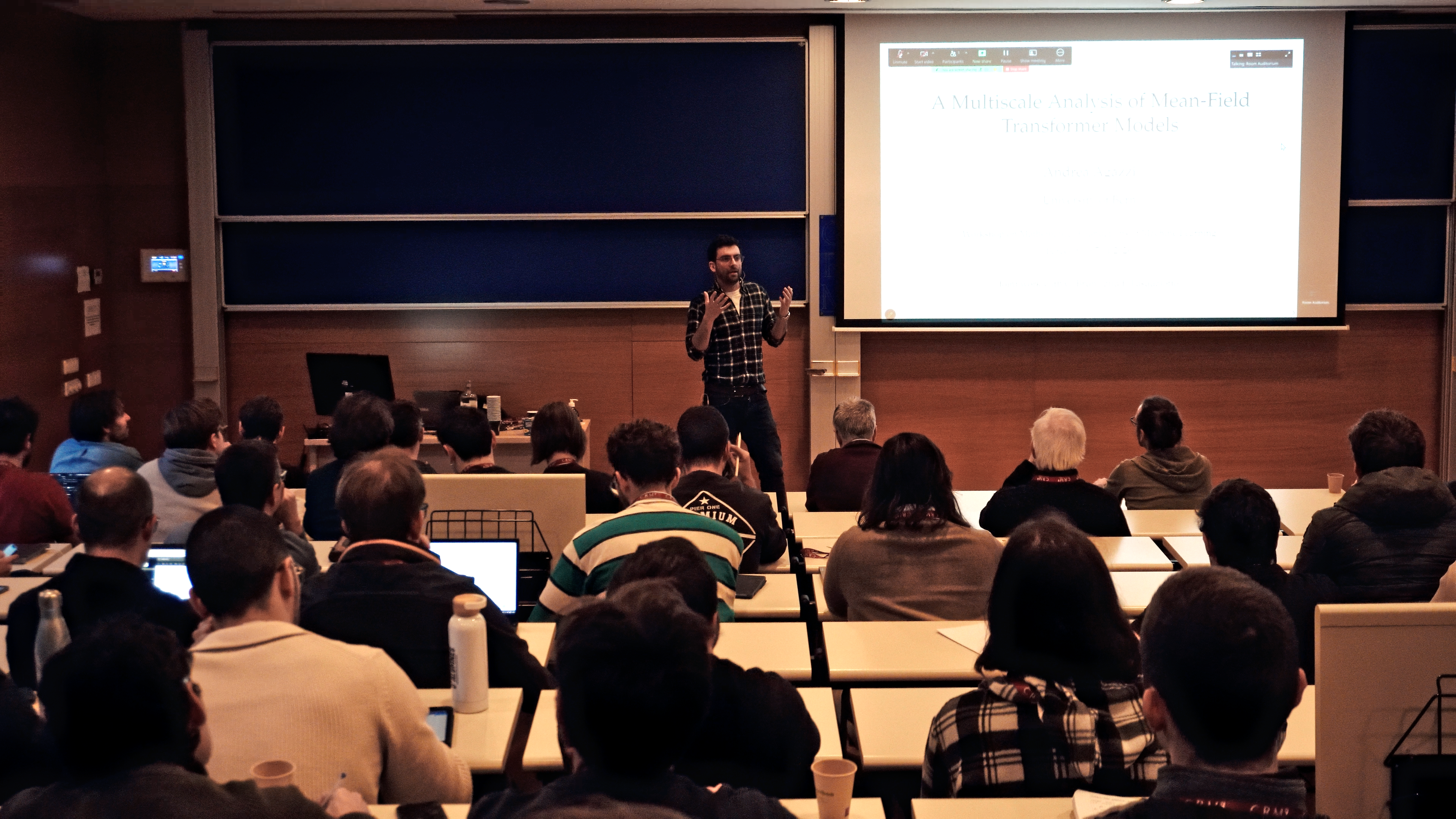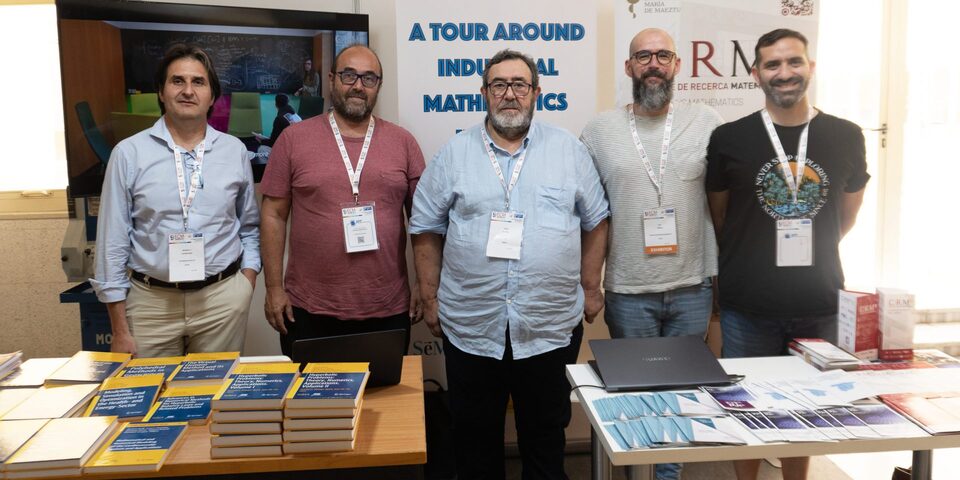
- The 9th European Congress of Mathematics (9ECM) took place in Seville from July 15 to 19, 2024, with 1300 participants, featuring plenary lectures, invited talks, minisymposium talks, and thematic session presentations.
- CRM participated with several talks and panels, including a collaborative booth with Math-in Spain and SEMA, highlighting their research activities and fostering discussions on potential collaborations and research visits.
- CRM researchers Albert Mas, Ramon Antoine, and Francesc Perera presented on topics such as Dirac operators, C*-algebras, and Cuntz semigroups, while Lluís Alsedà, CRM Director, participated in panels on open science and the role of mathematics institutes.
Last week, Sevilla became the European capital of mathematics by hosting the 9th European Congress of Mathematics (9ECM). The event, running from July 15 to 19, 2024, attracted 1300 participants from all over the world and featured a comprehensive program including 12 plenary lectures, over 30 invited talks, 640 minisymposium talks, and 270 thematic session presentations. Organized by the European Mathematical Society (EMS), the ECM is held every four years in different European cities. It provides a platform for leading mathematicians to discuss the latest advancements in their fields. The 9th ECM, the second to be held in Spain following the 2000 Barcelona edition, is the largest mathematics congress in Europe and the second largest worldwide after the International Congress of Mathematicians. Highlights included the EMS Prizes awarded during the opening ceremony, recognizing outstanding contributions by European mathematicians under 35, and the Felix Klein and Otto Neugebauer Prizes.
The Centre de Recerca Matemàtica (CRM) participated in the congress by holding several talks and panel discussions. A key highlight of CRM’s participation was the collaborative booth managed alongside Math-in Spain and the Spanish Society of Applied Mathematics (SEMA). This booth, highlighting not only the research activity carried out at CRM but also the work of the Knowledge Transfer Unit, represented by its director David Romero, offered researchers, students, and industry professionals an opportunity to learn about CRM’s latest projects and initiatives. The booth facilitated discussions on potential collaborations, research visits by international researchers, and also the hosting of potential PhD students.
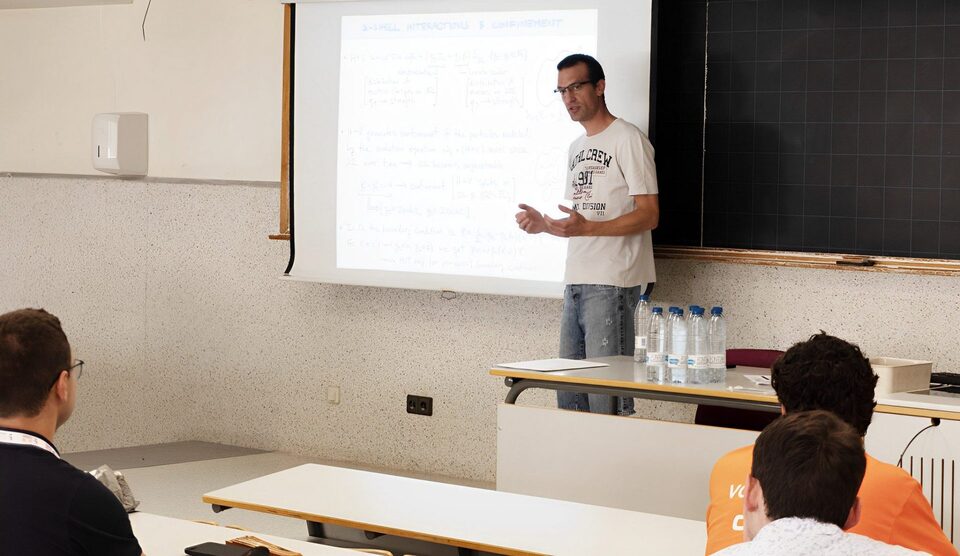
CRM researchers also made significant contributions to the congress by participating in various minisymposiums, represented by Albert Mas, CRM affiliated researcher from the UPC, and Ramon Antoine and Francesc Perera, affiliated researchers from the UAB. Albert Mas‘ presentation on the convergence of generalized MIT bag models to Dirac operators with zigzag boundary conditions explored a family of Dirac operators with specific boundary conditions. Ramon Antoine Riolobos presented his findings on C*-algebras, specifically those considered (m,n)-pure as defined by Winter. He explained that such algebras are inherently pure, with their Cuntz semigroups exhibiting regular properties like almost unperforation and divisibility. His research showed that even weaker conditions within these semigroups naturally lead to the overall purity of the C*-algebra, enhancing the understanding of their structural qualities.
During the same minisymposia on operator algebras, Francesc Perera, who also served as the chair of the session, gave a talk on “Ideal Free Quotients of Cuntz Semigroups: The Dynamical Cuntz Semigroup”. He introduced a theory for general quotients of Cuntz semigroups, including those by ideals. He explained the concept of admissible pairs and their quotients, similar to how normal subgroups arise in group homomorphisms. This theoretical framework allowed the construction of the dynamical Cuntz semigroup, a universal object derived from a group’s action.
Lluís Alsedà, CRM Director, participated in two panel discussions.
One of the standout events organized by CRM was the panel on New Scenarios in Open Science, chaired by Miguel Ángel Benítez from BCAM. Panellists included André Gaul from EMS Press, Ignasi Labastida from Universitat de Barcelona, and Pilar Rico from FECyT. This panel discussed critical aspects of open science, such as data sharing, open-access publishing, and collaborative research practices. “Open Access means that information is accessible, which is the only way for science in general, and mathematics in particular, to grow,” stated André Gaul.
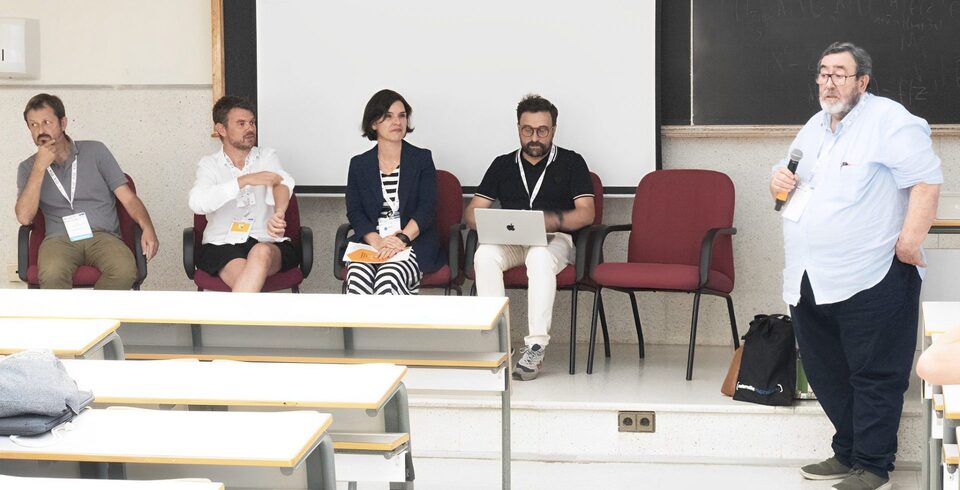
The discussion highlighted the evolving role of academic publishing in promoting open access, the importance of institutional support for fostering open science practices, and the practical challenges and opportunities in implementing these principles in research projects. Recommendations for best practices were also provided to help navigate these challenges effectively.
Another significant event was the panel on The Role of Institutes of Mathematics in the Advancement of Mathematical Research, chaired by Justo Puerto from Universidad de Sevilla. The panel featured several directors of mathematics institutes in Spain, like Rosa Crujeiras from CITMAGA, Lluís Alsedà from CRM, Miguel Sánchez from IMAG, José A. Lozano, Director at BCAM, and Javier Aramayona, Director at ICMAT. The panel also included international experts, Martin Bridson, president of the Clay Mathematics Institute, and Anna Wienhard, director at the Max Planck Institute for Mathematics in the Sciences.
The debate focused on the evolving role of research institutes in fostering innovation, supporting researchers, and addressing global scientific challenges. A recurring theme was the desire for greater collaboration among all mathematics research institutes and the need to push for a more favourable science policy.
Bologna will host the 10th edition of the European Congress of Mathematics in 2028
Following the vote of the European Mathematical Society (EMS) council during the meeting held in Granada before the start of the ECM, Bologna has been chosen as the venue of the 10th edition of the European Congress of Mathematics to be held in 2028.
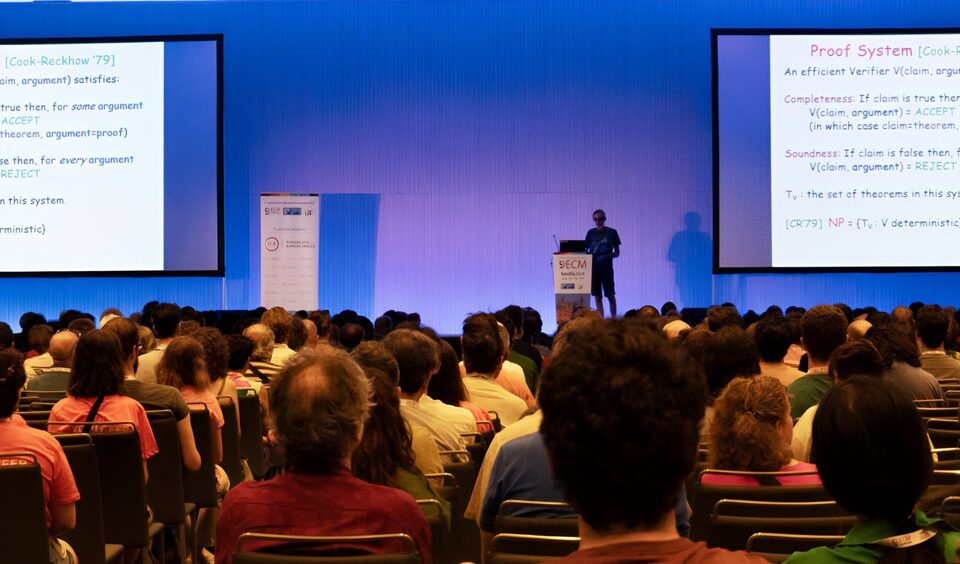
CRM’s active involvement in the 9th European Congress of Mathematics highlighted its presence among the most important mathematical events in Europe, through the collaborative booth, insightful talks by its researchers, and participation in panels. The congress provided a valuable platform for sharing cutting-edge research and discussing future directions in mathematics.
Subscribe for more CRM News
|
|
CRM CommPau Varela & Mariona Fucho
|
When Symmetry Breaks the Rules: From Askey–Wilson Polynomials to Functions
Researchers Tom Koornwinder (U. Amsterdam) and Marta Mazzocco (ICREA-UPC-CRM) published a paper in Indagationes Mathematicae exploring DAHA symmetries. Their work shows that these symmetries shift Askey–Wilson polynomials into a continuous functional setting,and...
Homotopy Theory Conference Brings Together Diverse Research Perspectives
The Centre de Recerca Matemàtica hosted 75 mathematicians from over 20 countries for the Homotopy Structures in Barcelona conference, held February 9-13, 2026. Fourteen invited speakers presented research spanning rational equivariant cohomology theories, isovariant...
Three ICM speakers headline the first CRM Faculty Colloquium
On 19 February 2026, the Centre de Recerca Matemàtica inaugurated its first CRM Faculty Colloquium, a new quarterly event designed to bring together the mathematical community around the research carried out by scientists affiliated with the Centre. The CRM auditorium...
Trivial matemàtiques 11F-2026
Rescuing Data from the Pandemic: A Method to Correct Healthcare Shocks
When COVID-19 lockdowns disrupted healthcare in 2020, insurance companies discarded their data; claims had dropped 15%, and patterns made no sense. A new paper in Insurance: Mathematics and Economics shows how to rescue that information by...
L’exposició “Figures Visibles” s’inaugura a la FME-UPC
L'exposició "Figures Visibles", produïda pel CRM, s'ha inaugurat avui al vestíbul de la Facultat de Matemàtiques i Estadística (FME) de la UPC coincidint amb el Dia Internacional de la Nena i la Dona en la Ciència. La mostra recull la trajectòria...
Xavier Tolsa rep el Premi Ciutat de Barcelona per un resultat clau en matemàtica fonamental
L’investigador Xavier Tolsa (ICREA–UAB–CRM) ha estat guardonat amb el Premi Ciutat de Barcelona 2025 en la categoria de Ciències Fonamentals i Matemàtiques, un reconeixement que atorga l’Ajuntament de Barcelona i que enguany arriba a la seva 76a edició. L’acte de...
Axel Masó Returns to CRM as a Postdoctoral Researcher
Axel Masó returns to CRM as a postdoctoral researcher after a two-year stint at the Knowledge Transfer Unit. He joins the Mathematical Biology research group and KTU to work on the Neuromunt project, an interdisciplinary initiative that studies...
The 4th Barcelona Weekend on Operator Algebras: Open Problems, New Results, and Community
The 4th Barcelona Weekend on Operator Algebras, held at the CRM on January 30–31, 2026, brought together experts to discuss recent advances and open problems in the field.The event strengthened the exchange of ideas within the community and reinforced the CRM’s role...
From Phase Separation to Chromosome Architecture: Ander Movilla Joins CRM as Beatriu de Pinós Fellow
Ander Movilla has joined CRM as a Beatriu de Pinós postdoctoral fellow. Working with Tomás Alarcón, Movilla will develop mathematical models that capture not just the static architecture of DNA but its dynamic behaviour; how chromosome contacts shift as chemical marks...
Criteris de priorització de les sol·licituds dels ajuts Joan Oró per a la contractació de personal investigador predoctoral en formació (FI) 2026
A continuació podeu consultar la publicació dels criteris de priorització de les sol·licituds dels ajuts Joan Oró per a la contractació de personal investigador predoctoral en formació (FI 2026), dirigits a les universitats públiques i privades del...
Mathematics and Machine Learning: Barcelona Workshop Brings Disciplines Together
Over 100 researchers gathered at the Centre de Recerca Matemàtica to explore the mathematical foundations needed to understand modern artificial intelligence. The three-day workshop brought together mathematicians working on PDEs, probability, dynamical systems, and...

